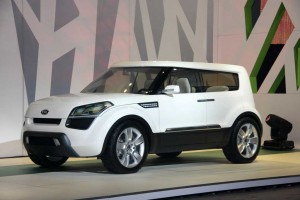Nearly 900,000 American owners of Hyundai and Kia vehicles could be in for an unexpected holiday present, the settlement of a class-action lawsuit filed following revelations the two Korean carmakers had faked fuel economy numbers on a variety of models sold during the 2011 to 2013 model-years.
Following an investigation by the U.S. Environmental Protection Agency, the two manufacturers – both owned by the same, Seoul-based conglomerate – acknowledged that the stated mileage of products like the Hyundai Elantra and Kia Soul had been inflated by anywhere from 1 to 6 miles per gallon.
Hyundai originally offered to reimburse owners on an annual basis for higher fuel costs – plus a 15% bonus for the inconvenience – but the process requires motorists to visit a dealership each year to have their payment calculated depending upon how many miles they have clocked.
The new approach will give owners the option of accepting a one-time lump sum payout, said Rob Carey, a partner at Hagens Berman, the law firm that brought the class action, explaining that, “Our main objective was it to make it easy for the consumer to get back what they had lost, which is the added cost of fuel.”
The precise amount of the payout will be impacted by several factors – including the number of Hyundai and Kia owners who accept the settlement rather than continuing to use the annual payout process. Lawyers handle the settlement say that for some motorists who put on a lot of miles each year, the yearly payment process may actually be more beneficial.
(Fuel economy numbers hit all-time record. Click Here for details.)
For those who opt in on the settlement, it’s expected that Hyundai owners should receive an average $353 apiece. The payment would nearly double, to an average $667, for Kia owners because the mileage gap was larger for that maker.
Those figures would be offset by any payments an owner has already received since the MPG flap became public in 2012.
Motorists also can opt to use their payouts in the form a dealership credit. If they use the money for maintenance and repairs they will receive a 50% bonus. The figure would double if the settlement is applied to the purchase of a new Hyundai or Kia product.
Attorney Carey took a positive position on the matter by suggesting their study of internal documents didn’t reveal anything that “was clearly fraud or deceptive,” adding that the over-statement of mileage was likely the result of a misunderstanding about how fuel economy numbers are calculated.
“Kia Motors is a responsible company, and the proposed settlement enhances our goal of making things right for our customers by providing new reimbursement options,” said John Yoon, a Kia executive vice president.
Along with nearly 600,000 Hyundai owners and another 350,000 Kia owners, about 150,000 more motorists were impacted by the mileage gap outside the U.S. The news proved a major embarrassment for the Korean makers as they were aggressively promoting their fuel economy numbers at the time.
The end-of-the-year agreement is the last major legal hurdle for the two makers over the mileage mis-statement, Hyundai having previously settled 38 other lawsuits.
The latest settlement still has to be formally approved by a federal judge, a process expected to be completed early next year.
(Glut of oil could keep fuel prices down, at least for awhile. Click Here for the inside story.)
Meanwhile, other automakers have been facing their own flaps over stated mileage numbers. Honda settled a dispute over the performance of an older-generation Civic Hybrid this year. And Ford is planning to compensate about 32,000 owners of its C-Max Hybrid people mover as a result of restating the vehicle’s mileage by nearly 10%, from an original 47 mpg to 43 miles per gallon. Those who leased the vehicle will receive $325, while buyers will get $550.
(For more on the Ford C-Max mileage mess, Click Here.)
The industry has faced a rash of complaints about vehicles that don’t deliver the mileage ratings authorized by the EPA. The problem has generally been most severe with hybrid-electric models which industry experts say are more vulnerable to variations caused by driving conditions and driver behavior.


The lust for money strikes again.